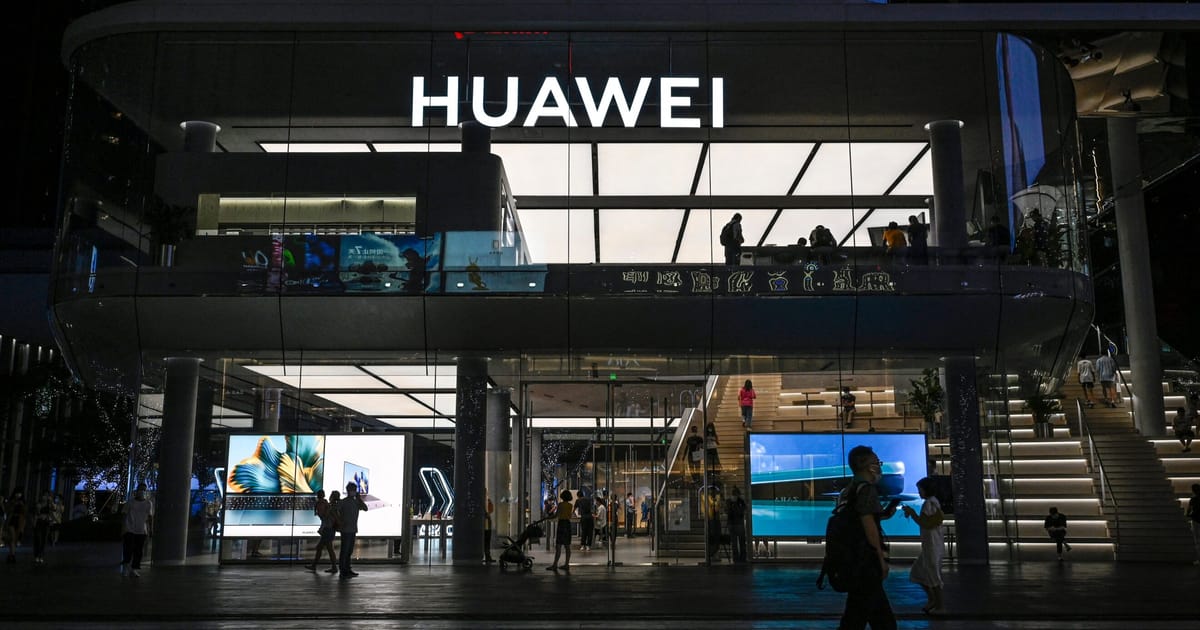[ad_1]
BERLIN — Germany is getting ready to wean its telecoms networks off their dependence on China.
Leading lawmakers and politicians are calling on telecoms operators to reduce their reliance on Chinese equipment in current and future networks. It comes after a report showed operators have procured high amounts of 5G equipment from Chinese vendors recently, and follows years of German hesitation to slap restrictions on so-called high-risk vendors, a term widely understood to mean Chinese equipment makers Huawei and ZTE.
The pivot away from Huawei fits a changing approach to China by the coalition government led by Chancellor Olaf Scholz. Its Economy Minister Robert Habeck in November said the country was looking to become less dependent on China, pointing to sectors such as telecommunications and chips as prime concerns. Habeck also formally blocked Chinese investors from buying a German chips plant that same month.
After the Russian invasion of Ukraine exposed Germany’s reliance on authoritarian regimes in critical sectors like energy, Berlin is now critically questioning its reliance on Chinese telecoms companies too.
“After far too long a stalemate, the [former government] has created the possibility of excluding untrustworthy providers from the expansion of our critical infrastructures … Nevertheless, a lot of technology from Huawei is still installed in our critical infrastructure today. That’s bad,” said Maik Außendorf, parliament member and digital policy expert for the Greens party of minister Habeck.
“The technology of Chinese companies urgently needs to be removed at least from the core area of our critical IT infrastructure,” Außendorf said, adding Germany needed “a general overhaul of private-sector cooperation with companies from autocratic states.”
When asked about Huawei’s role in German networks, Johannes Schätzl, a member of the Bundestag for Scholz’s Social Democratic Party (SPD) and an expert on digital issues, said that “we have to become more independent of dominant providers with the entire infrastructure, and especially with the critical infrastructure, especially if their trustworthiness is not beyond doubt.” Schätzl did not explicitly name Huawei.
The slow pace of Berlin’s 5G security measures has meant operators have procured plenty of Chinese equipment for their early 5G rollout, figures provided by telecoms consultancy Strand Consult showed in December. It estimated that Chinese vendors (and primarily Huawei) provided up to 59 percent of nascent 5G infrastructure.
That realization has hit home with government ministers too. “The highest level of security has to be subject to European sovereignty, fully European regulated and not influenced by non-Europeans,” German Digital Minister Volker Wissing, a Liberal, told POLITICO in an interview when asked about Huawei’s role in telecoms networks. “We need sovereignty so that we always have alternatives,” he added.
As tech companies build the next generation of 6G, the goal is “to secure the competitiveness of European manufacturers” like Nokia or Ericsson, said SPD member Schätzl.
In April 2021 — more than a year after the EU’s joint 5G Security Toolbox guidelines were passed — the German government passed measures that allowed the government to intervene in operators’ contracts with Chinese vendors. Under the rules, the interior ministry has veto power to ban or recall certain components if they see them as an “impairment of public order or safety.”
But such interventions haven’t happened, POLITICO earlier reported. Up until now, specific orders to cut Huawei from German networks “have not been issued,” a spokesperson for the interior minister said in an email.
The law “created the possibility to prohibit the use of specific critical components in mobile networks. The use of this instrument must be examined,” said Maximilian Funke-Kaiser, a liberal member of the German Bundestag and a digital policy speaker for the government party Free Democratic Party (FDP).
The European Commission is finalizing a report looking at how its 5G Security Toolbox document was implemented by the bloc’s 27 member countries. That report is expected in the coming weeks.
EU officials have already criticized Germany for being one of the bloc’s laggards. “It is not only Germany, but it is also Germany,” Commission Executive Vice President Margrethe Vestager, who oversees digital policy, said in November.
While 23 member countries have made legislation to implement the toolbox, only seven have imposed the necessary restrictions, Internal Market Commissioner Thierry Breton told an audience in Finland earlier this month. “This is not enough,” he said.
[ad_2]
